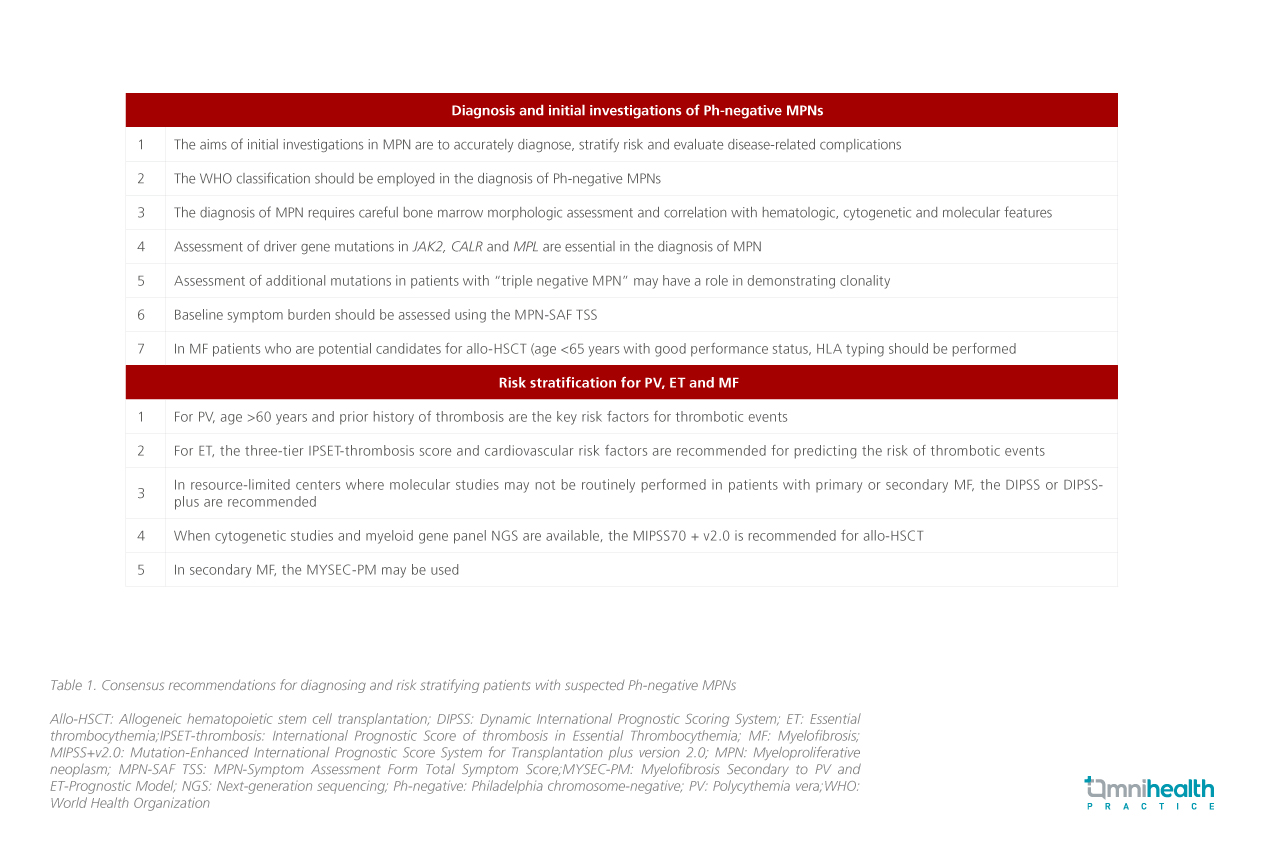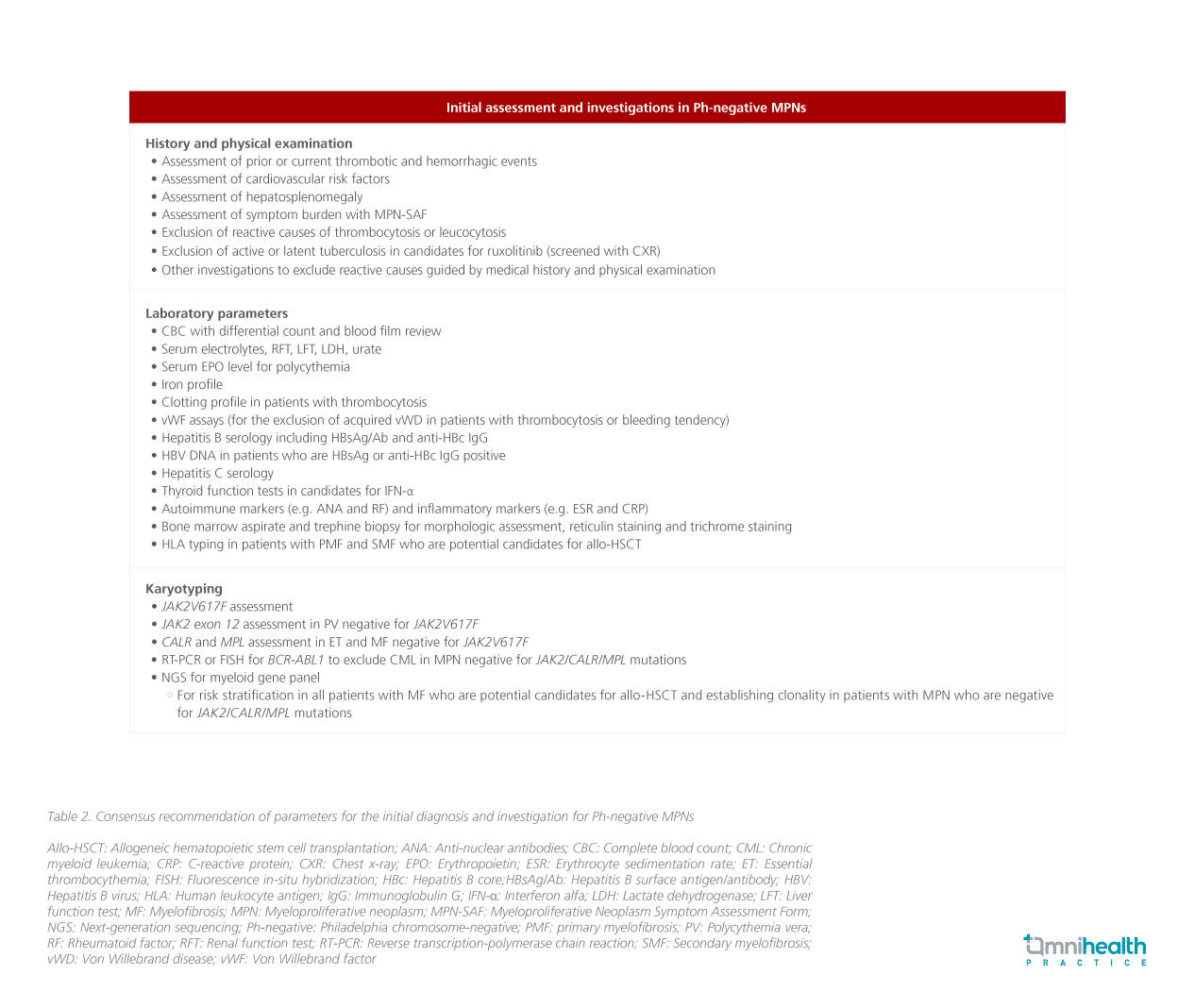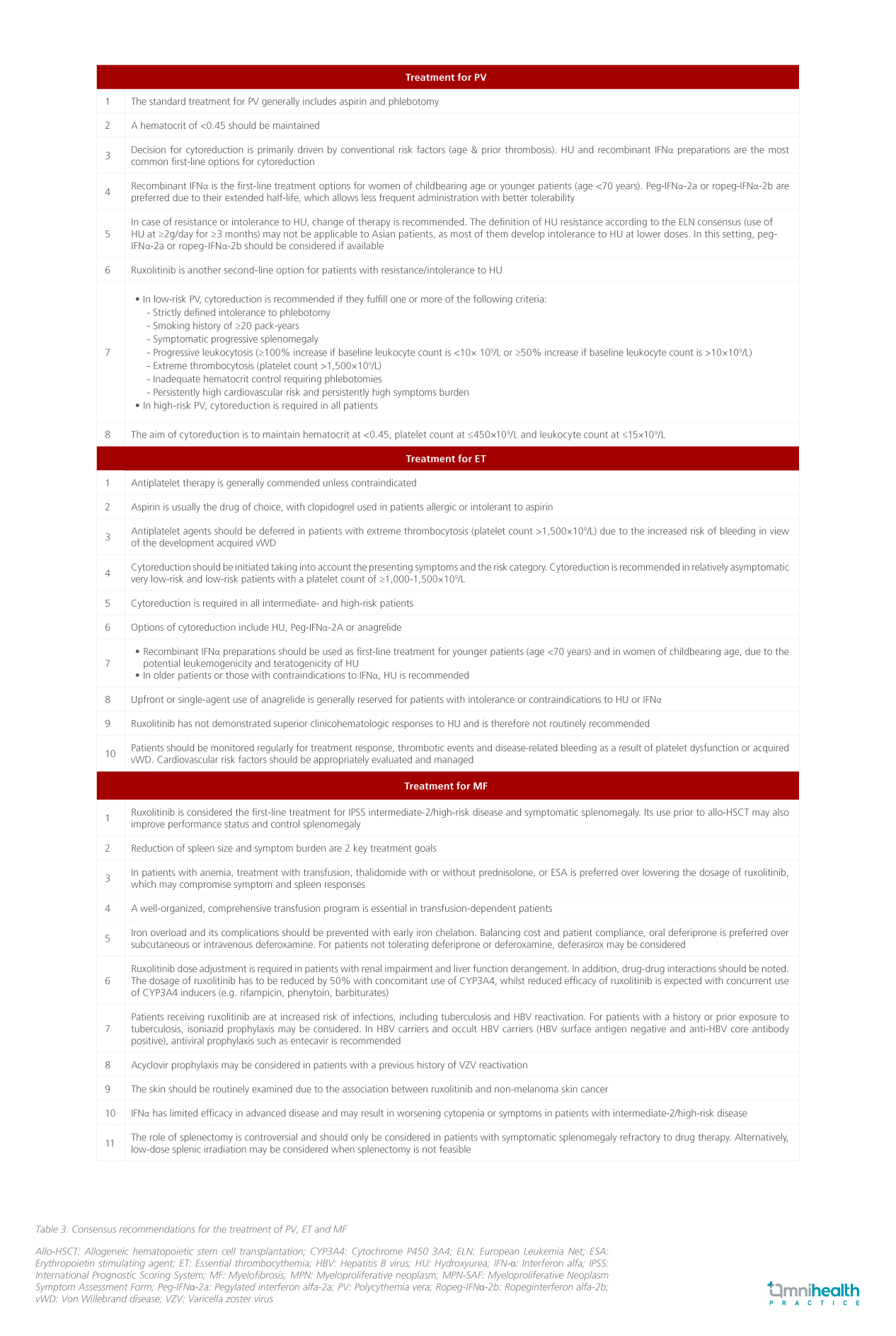INDUSTRY ESSENTIALS
Blueprints for the management of Ph-negative MPNs among Asian populations: Expert consensus from the Asian Myeloid Working Group
Myeloproliferative neoplasms (MPNs) are a group of disorders of the clonal hematopoietic stem cells involving the proliferation of hematopoietic lineages. Conventionally, Philadelphia chromosome (Ph)-negative MPNs comprise polycythemia vera (PV), essential thrombocythemia (ET) and primary myelofibrosis (MF).1 Ph-negative MPNs are more prevalent among Asian countries.1 The “MERGE” registry had established that the incidence rate of Ph-negative MPNs across 16 Asian countries was 12-15 per 100,000 hospital patients, which was higher than that of the United States (3.1 per 100,000) and European countries (2.7 per 100,000), thereby highlighting the elevated susceptibility of Asian patients towards Ph-negative MPNs.1In particular, the incidence of Ph-negative MPNs peaked among Asian individuals aged between 60 and 69, with MF being the subtype associated with the highest disease burden (96% symptomatic), followed by PV and ET (92% symptomatic).1
Despite the differences in the incidence of Ph-negative MPNs between Asian and non-Asian populations, currently available clinical guidelines for the management of Ph-negative MPNs are centered around American and European patient populations and not tailored towards the epidemiology of Ph‑negative MPNs in Asia.1 Hence, members of the Asian Myeloid Working Group (AMWG) have dedicated themselves to establishing a set of guidelines that take account of the clinical needs and resource limitations in Asian regions.1
The AMWG, comprised of experts from 15 Asian centers who are experienced in the management of MPN, conducted a comprehensive literature review between January 1, 2020 and January 31, 2023 on all English articles related to MLN management obtained from the MEDLINE database.1 Based on the available clinical evidence and the expertise of the AMWG, a consensus report on MPN management among Asian populations was published.1 This article summarizes the recommendations on the risk assessment (table 1), diagnosis (table 2) and treatment (table 3) of the 3 subtypes of Ph-negative MPNs from the consensus report.1




